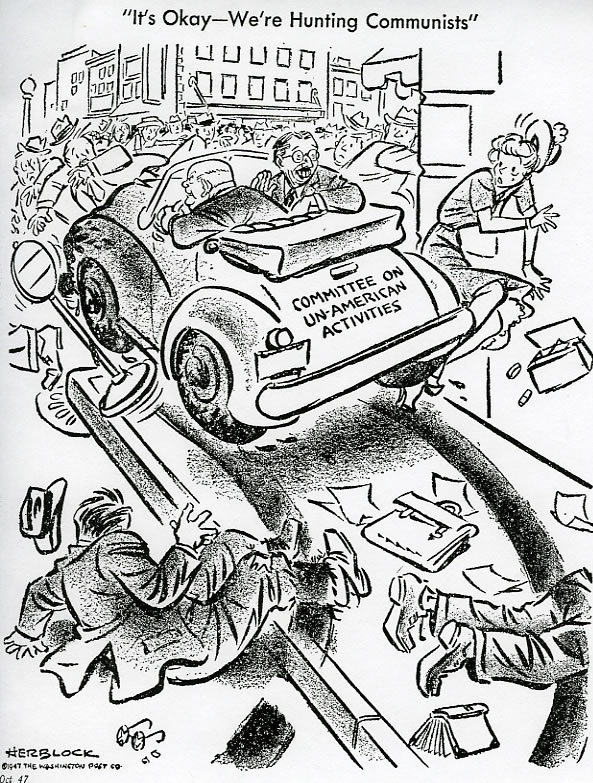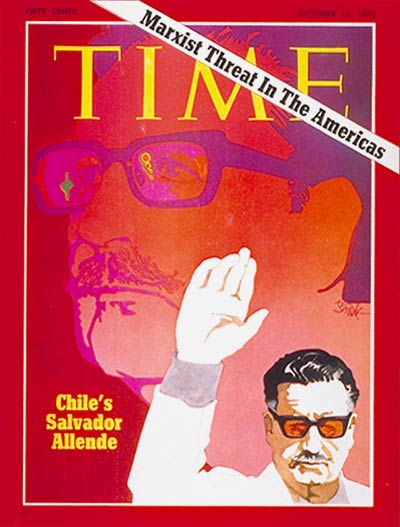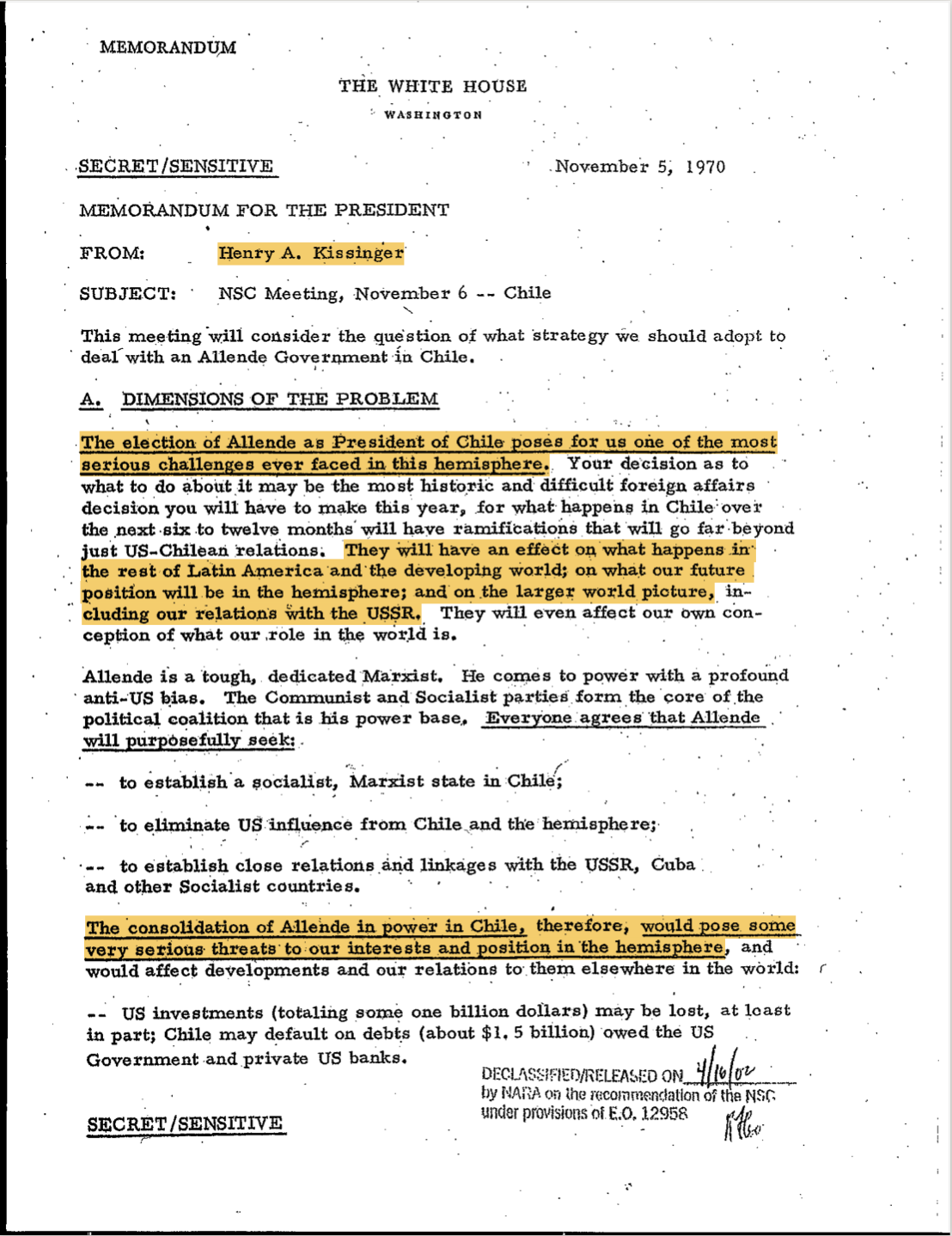A Fear of Communism
Following World War II, the US government saw communism as an increasing threat to ‘American beliefs’ and to democracy worldwide. Throughout the Cold War with the Soviet Union, the removal of Marxist leaders, specifically in Latin America due to its close proximity to the US, was key leverage to prevent communist strongholds within the Western Hemisphere. The US went to extreme measures to do this, including installing dictators to power, as seen in the CIA’s military overthrow of Guatemala’s democratic government in 1954.

Herblock, 'It's okay--We're hunting communists,' Washington Post, October 31, 1947.
Elected president in 1968, Richard Nixon was determined to avoid what he saw as a failure of previous administrations, the continued leadership of Cuba by Fidel Castro, by preventing communist rule in other countries in the Americas.

'Chile's Salvador Allende,' Time Magazine Archives, 1970.
In 1970, socialist Salvador Allende increased his popularity heading into the presidential election in Chile, on the platform to nationalize Chile's American owned copper companies. This prompted Nixon and National Security Advisor Henry Kissinger to focus their attention on Chilean politics. As they had done in Guatemala and other Latin American countries, the CIA opened communications with Chilean military officials, exploring options to prevent Allende from gaining power.
'Nixon and Kissinger,' Democracy Now Archives, 1970.
"The Unidad Popular government represented the first attempt anywhere to build a genuinely democratic transition to socialism - a socialism that, owing to its origins, might be guided not by authoritarian bureaucracy, but by democratic self-rule,"
~ Presidental candidate Salvador Allende

'Declassified CIA documents,' National Security Archives, 1970-73.
"I don’t see why we need to stand by and watch a country go communist because of the irresponsibility of its own people."
~ Henry Kissinger,
US National Security Advisor